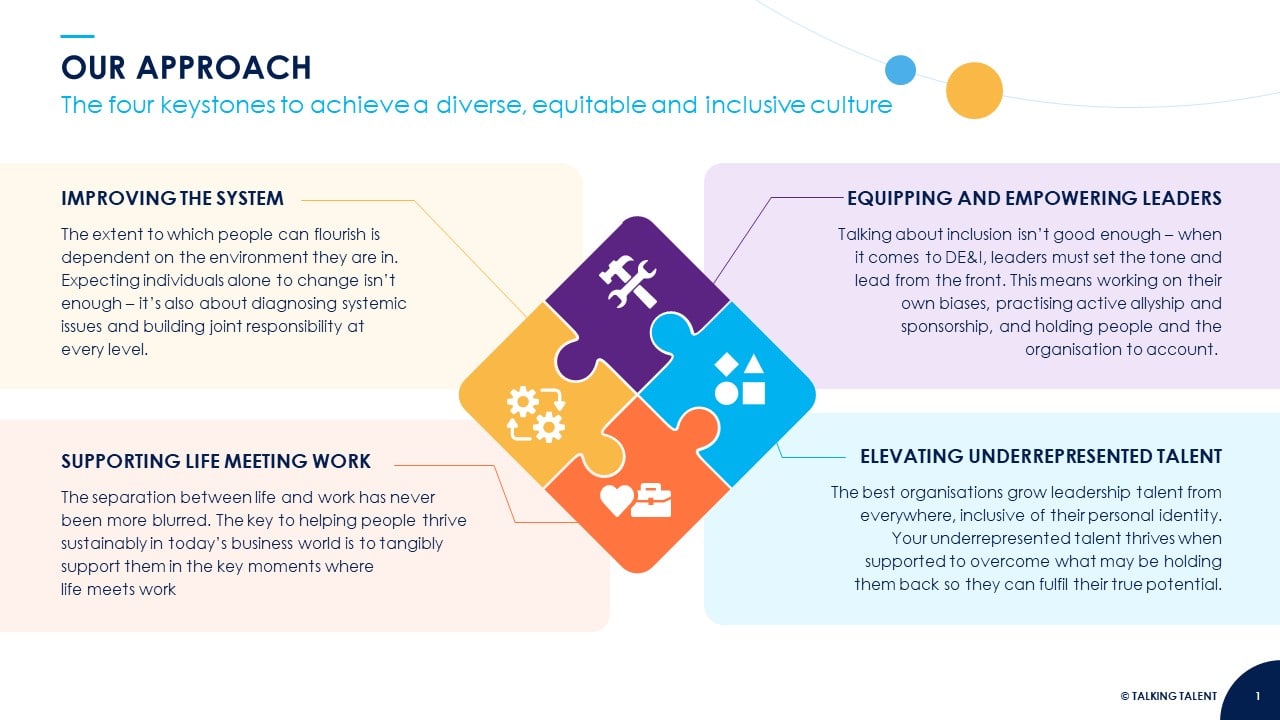Improving the system
Traditional approaches to DE&I, which typically involve stand-alone initiatives (like one-off workshops and webinars), may have actually contributed to the problem. Not intentionally, of course. But if you’re not looking at the whole problem you’re unlikely to come up with the right solution.
A holistic, starting-with-the-system approach to DEI can help businesses thrive. And real change doesn’t happen overnight. It takes a comprehensive overhaul and long-term commitment. The kind that digs into the underlying structures that have allowed inequality to exist within an organization.
“No matter how talented people are, they won’t reach their full potential if the system works against them,” explains Mary-Clare.
Equipping and Empowering Leaders
As leaders, we have a lot on our plates. From driving strategy to encouraging performance and creating a positive culture, it’s a daunting job. And in today’s work environment, it means constantly learning new skills.
“Leaders need to be equipped with the right behavioral skills to help embed DE&I into the very culture of an organization,” says Mary-Clare.
One skill that has become increasingly important is being fluent in inclusion competencies. It’s not enough for an organization to have a DE&I strategy. Every leader needs to know they can be an agent of change. Otherwise, an initiative will fail before it’s even started; and people who deserve chances won’t get them.
Elevating Underrepresented Talent
Unfortunately, it’s not always easy for people with particular backgrounds and identities to flourish at work. But there are ways to help elevate them.
“We want to help organizations identify pockets of talent in their business that may have been overlooked,” says Mary-Clare “(We then) put in place targeted coaching-led programs to support them to rise to their full potential.”
Line managers need to be given the tools to be better mentors and sponsors. Safe spaces need to be created for underrepresented talent to discuss their challenges and help them advance. And leaders need to take into account the interplay of identities that a person may have (intersectionality, in DE&I lingo). This way, an organization can create a truly representative culture that actively supports talent wherever it’s found.
Supporting Life Meeting Work
None of us exist solely within the confines of our work, especially in this era of hybrid and remote working. Our work lives have become intertwined with everything else that we have going on. As our jobs are a significant part of our identity, major changes in our personal lives greatly impact our professional careers and vice versa. So, it is crucial for employers to recognize the individuality of each employee and provide them with personalized support.
“We believe that organizations have an increasing role to play supporting people navigating those key moments when life has the potential to derail success at work,” says Mary-Clare.
Workplace success is at the core of what we’ve always done at Talking Talent. It always will be. It’s hard work. And it can sometimes be a little tricky. But it’s what we love doing.
Dr. Mary-Clare Race recently recorded a video further explaining Keystones and Talking Talent’s vision. To watch that video, simply follow this link.







